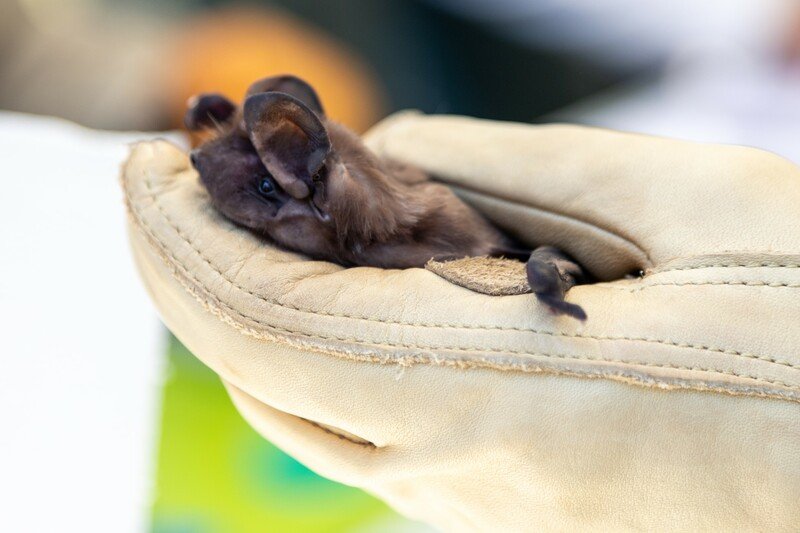For Immediate Release, February 8, 2023
|
Contact: |
Elise Bennett, Center for Biological Diversity, (727) 755-6950, ebennett@biologicaldiversity.org |
Lawsuit Challenges Federal Failure to Protect Rare Wildlife From South Florida Development
Miami Wilds Project Threatens Florida Bonneted Bat, Miami Tiger Beetle, Endangered Butterflies, Plants
MIAMI— Conservation groups sued the National Park Service today for failing to protect the endangered Florida bonneted bat, Miami tiger beetle, Bartram’s scrub-hairstreak, endangered plants and globally imperiled pine rocklands from the destructive effects of the Miami Wilds water park and retail development in South Florida.
The Florida bonneted bat depends on the development site as a key foraging area. This habitat feeds the bat’s largest known population, which is also genetically unique, making it critical to the species’ survival and recovery.
In 2022 the Park Service signed off on an agreement to release land-use restrictions on the site of the proposed project, paving the way for construction to proceed. But the agency failed to consult with the Fish and Wildlife Service to make sure the development will not jeopardize endangered species or destroy critical habitat — a key step required by the Endangered Species Act. The agency also failed to undertake requisite environmental review under the National Environmental Policy Act.
“It’s absurd that we have to battle the Park Service to save South Florida’s biodiversity,” said attorney Elise Bennett, Florida director at the Center for Biological Diversity. “Thoughtless development has driven the Florida bonneted bat, Miami tiger beetle and many other rare Florida creatures into tiny fragments of remaining habitat. To save one of the precious few of these still wild places in urban Miami-Dade, we have to take the Park Service to court.”
“The Florida bonneted bat is one of the rarest mammals on Earth,” said Mike Daulton, executive director at Bat Conservation International. “These kinds of incredibly rare species need the full protection offered by the Endangered Species Act. Greedy developers want to line their pockets while they drive these species to extinction. The Park Service shouldn’t be helping them.”
“The National Park Service’s failure to consult with the U.S. Fish and Wildlife Service and conduct an environmental review under NEPA is a procedural mistake that will harm endangered species and their habitat,” said Lauren Jonaitis, senior conservation director of Tropical Audubon Society. “They've left us with no option other than litigation to ensure they don’t repeat this egregious error.”
“Consultation between federal agencies is a statutory requirement,” said Dennis Olle, president of the Miami Blue Chapter of the North American Butterfly Association. “The fact that the Park Service failed to do so is not only a disappointment, but an unfortunate indication of how tenuous the important federal protections extended to endangered species actually are. We're going to court to enforce these vital protections for endangered species and the environment, as Congress intended when it made these laws.”
Miami Wilds plans to build a 27.5-acre water park, retail area, hotel and more than 40 acres of associated parking lots. Miami-Dade County approved a lease agreement for the Miami Wilds site in June 2022. The lease was contingent on the Park Service’s release of land-use restrictions.
The project footprint includes critical habitat for Bartram’s scrub-hairstreak and Florida leafwing, two endangered butterflies, and proposed critical habitat for the endangered Miami tiger beetle and Florida bonneted bat. It also neighbors proposed critical habitat for the Rim Rock crowned snake and three plants: the Blodgett’s silverbush, Everglades bully and sand flax. Rare plants like the Florida brickell-bush and Carter’s small-flowered flax are also present around the site.
The development threatens to cause cascading effects on imperiled species and surrounding ecosystems. It will destroy the dark, open foraging habitat needed by bats and displace many other species who use the site. The development also threatens critically imperiled pine rockland habitat on and surrounding the site by hampering the natural fire needed to support ecosystem health and introducing nonnative and invasive species. Pine rocklands are home to dozens of rare and endangered animals, plants and insects found nowhere else on Earth.
Today’s lawsuit was filed in federal court in the Southern District of Florida by the Center for Biological Diversity, Bat Conservation International, Miami Blue Chapter of the North American Butterfly Association, and Tropical Audubon Society.

The Center for Biological Diversity is a national, nonprofit conservation organization with more than 1.7 million members and online activists dedicated to the protection of endangered species and wild places.
Founded in 1982, Bat Conservation International is a global conservation organization dedicated to ending bat extinctions. Bat Conservation International works worldwide to conserve caves, restore critical habitats in danger, and ensure the survival of the world’s bat species. For more information, visit batcon.org.
The Miami Blue Chapter serves southeastern Florida, specifically Miami-Dade and Monroe Counties. We are a membership-based, not-for-profit organization working to increase the public enjoyment and conservation of butterflies. The Chapter is named after one of the rarest butterflies in North America, which used to (and one day will again) call Miami home.
Tropical Audubon Society is a science- and solutions-based nonprofit conservation organization driven by its grassroots community and principles of equity, diversity and inclusion. Tropical Audubon’s Legacy is to protect, conserve and restore South Florida ecosystems by working closely with local governments and other stakeholders, and by fostering wise stewardship of native habitats, birds and other indigenous wildlife.

